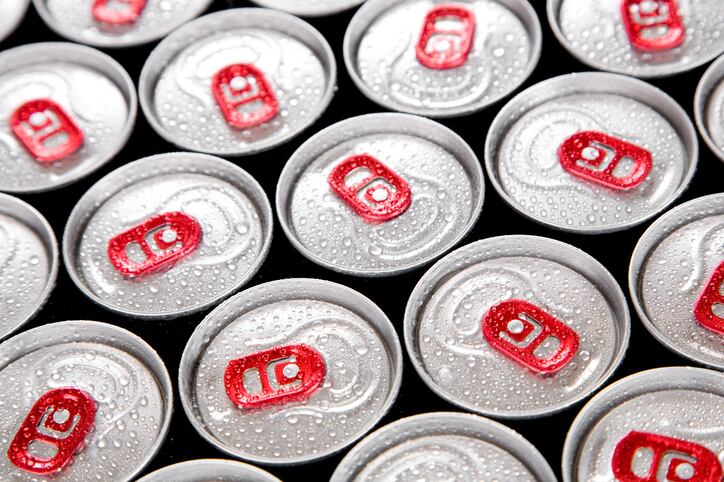It is expected a ban would cover energy drinks with more than 150mg caffeine per liter: with sales banned in both retail outlets and online.
That threshold would cover most traditional caffeinated energy drinks on the market: including Red Bull, Monster, Rockstar and Prime.
It comes as momentum across Europe builds to restrict sales of energy drinks: with restrictions in place in Latvia, Lithuania, Poland and Czechia.
Caffeine and sugar
Energy drinks are stimulating beverages that often include caffeine, taurine, vitamins and other substances with a nutritional or physiological effect.
They have long come under fire for the appeal they often hold for children, for whom high levels of caffeine and sugar are unsuitable.
A 250ml energy drink contains around 80mg of caffeine: around the size of a cup of coffee or three cans of cola. However, larger sizes can deliver a much larger caffeine punch, which children are often unaware that there should be a limit on how much they consume. Energy drinks also typically contain around 65% more sugar than regular soft drinks.
And the sugar reduction potential alone is attractive.
“We estimate the energy drink ban alone could reduce childhood obesity rates by 0.4 percentage points, with health benefits worth £7.7bn,” states the government in the 10 Year Health Plan for England.
It does not give an indication of the timeline for introducing any legislation. But campaigners are happy to see the ban is on the agenda.
“We wholeheartedly welcome the government’s bold and much-needed 10-year health plan to ban the sale of high-caffeine energy drinks to children under 16,” said Dr Kawther Hashem, head of research and impact at campaign group Action on Sugar. “This is a crucial step forward in protecting young people’s health and wellbeing.
“Energy drinks loaded with caffeine and sugar have been a growing concern, especially for children and teenagers who are more vulnerable to the negative impacts on their developing bodies and minds.”
The pledge is accompanied by measures to strengthen the UK sugar tax: raising the levy in line with inflation to maintain its effectiveness.
“The government’s commitment to not only restrict access but also set mandatory targets for improving the healthiness of products sold across the board is a game-changer,” said Hashem.
“By holding manufacturers accountable and driving reformulation, we can expect to see real improvements in the nutritional quality of many products. These targets must be ambitious, evidence-based, and effectively enforced. Now is the time to build on this momentum and push for swift implementation.”
In January last year, more than 40 health organizations called on policy makers to restrict energy drink sales to children. Their push was accompanied by a review of 57 studies in the Public Health journal.
That review found a ‘strong positive association’ between energy drink consumption and smoking, alcohol use, binge drinking, other substance use and intentions to initiate those behaviors.
It also found associations with short sleep duration, poor sleep quality and low academic performance: as well as noting increased risk of suicide, psychological distress, attention-deficit hyperactivity disorder symptoms, depressive and panic behaviors, allergic diseases, insulin resistance and dental problems.

